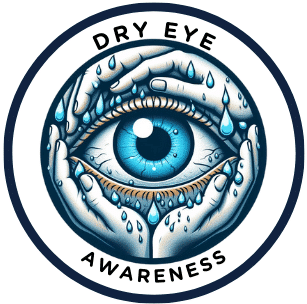
I’ll take you through an essential understanding of Dry Eye Syndrome (DES), a condition that likely affects someone you know, if not yourself. DES is characterized by a lack of sufficient lubrication on the eye’s surface, leading to a constellation of symptoms, including discomfort, redness, and visual disturbances that can significantly impact daily activities.
The symptoms can be as mild as a subtle irritation or as severe as a burning sensation and blurred vision, making early and accurate diagnosis crucial. Pinpointing DES involves a comprehensive eye examination, with doctors assessing both tear production and quality.
Remarkably, it’s not a rare condition. Research suggests a large portion of the adult population experiences Dry Eye Syndrome, with varying degrees of severity. It is not selective; adults of all ages, genders, and backgrounds can find themselves dealing with the nagging symptoms of DES.
A multitude of factors contribute to Dry Eye Syndrome. Environmental conditions, certain medications, and age are common culprits. However, one influential but less obvious factor is the body’s hormonal fluctuations, which can significantly alter tear formation and eye health. This takes us to an important connection that deserves attention: the link between hormones and Dry Eye Syndrome.
The Hormonal Connection: Exploring the Link
Your body’s endocrine system orchestrates an intricate dance of hormones, substances vital for regulating nearly every bodily function. Hormones are the unsung heroes, silently shaping aspects of your health that you may take for granted, including your eyes.
Dry Eye Syndrome often flies under the radar as a mere nuisance, but it’s crucial to recognize the deeper, hormonal roots of this condition. Consider this: your hormones can influence tear production and quality, which are vital elements in keeping your eyes comfortable and well-lubricated.

Estrogen and androgens, for example, have a say in the health of your eyes. Shifts in these hormone levels, frequently occurring during life stages such as menopause or pregnancy, can sway the balance, leading to dry, irritated eyes. Even your thyroid hormones have a seat at the table, impacting eye moisture when in flux.
Recognizing the relationship between hormones and Dry Eye Syndrome empowers you with the knowledge to seek appropriate care. In the next section, I’ll lay out the practical steps you can take, from lifestyle tweaks to medical interventions, to manage symptoms stemming from this hormonal tango.
Management and Treatment: Balancing Hormones to Relieve Symptoms
Seeking relief for Dry Eye Syndrome that traces back to hormonal causes means addressing the hormone imbalance itself.

Consider lifestyle adjustments first. Reducing stress, which itself can wreak havoc on hormonal levels, and getting a good night’s sleep are foundational steps. Simple, right? But don’t underestimate their power.
Next, let’s talk about diet. Certain foods can influence hormone production. Think Omega-3 rich fish, flaxseed, and leafy greens. Why not throw a salmon steak on the grill tonight or mix up a spinach salad?
Regular exercise also plays its part. It isn’t just good for your heart; it helps regulate hormones too. Not a fan of the gym? A brisk walk counts as well.
Medical interventions may be necessary, especially if lifestyle changes don’t alleviate symptoms. This could range from prescription eye drops to hormone replacement therapy, depending on individual circumstances.
Timing is everything. You don’t want to wait too long before seeking help. If you notice persistent symptoms despite these efforts, it’s time to consult an eye care specialist or an endocrinologist.
Remember, you’re aiming for relief, not a quick fix. Each body is different, and so is each solution.
Beyond the Eye: The Wide-ranging Impact of Hormonal Imbalances
Hormonal imbalances reach far beyond the discomfort of Dry Eye Syndrome. They can ripple through your body, affecting various aspects of health and wellbeing. It’s essential to recognize these imbalances not just as isolated events but as potential indicators of broader health issues.
Preventive measures are your best defense. Managing stress, maintaining a balanced diet, and regular exercise can all contribute to hormone stability. Equally important is routine medical check-ups, where hormone levels can be monitored and addressed promptly.
Personal stories underscore the interconnected nature of hormonal health. An individual’s successful management of Dry Eye Syndrome often stems from a holistic approach to balancing hormones. These anecdotes provide both motivation and insight for others facing similar challenges.
For those grappling with hormone-related health issues, you’re not alone. A wealth of resources, from online support groups to professional health associations, stand ready to assist. Lean on these support systems when navigating the complexities of hormonal health.
